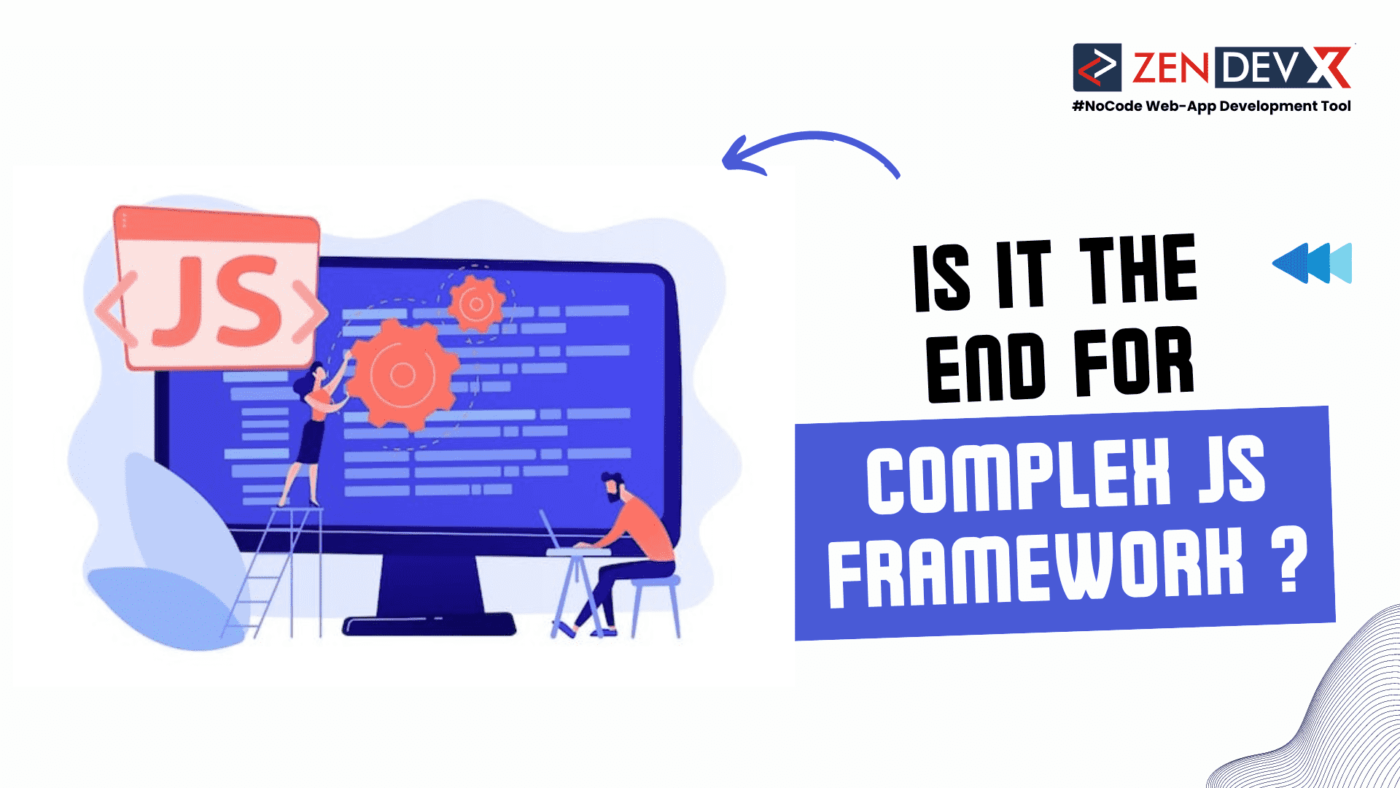Rising from the mid-2000s, the JavaScript ecosystem produced a great abundance of different frameworks enabling the creation of ever sophisticated web pages and apps. One could surely argue that UI development has been transformed by frameworks. They let developers create rich-feature solutions with far less resources than in past years and save time.
These benefits, nevertheless, are not without a cost. Many web developers are looking forward wondering if the era of JavaScript frameworks is rushing towards the conclusion and new ways of constructing websites and apps are going to take in as their evolution seems to be getting out of hand lately. When addressing application modernization, this might be difficult.
How bad are JavaScript frameworks ?
The ecosystem of JavaScript has clearly flaws. Originally developed in August 2006, the first JavaScript frameworks and libraries—like jQuery—were rapidly embraced since they offered many handy features that streamlined and automated several aspects of the web development process.
But with their life cycles reducing simultaneously, the number of fresh JavaScript frameworks and libraries has been expanding throughout time.
These are some of the most often used JavaScript frameworks available nowadays, in 2021:
- Angular
- React
- Vue.js
- Knockout.js
- Next.js
- Ext.js
- Node.js
- Svelte
- Ember.js
- Gatsby
- Express
- Mocha
New frameworks that offer even more functions with more complexity and adaptability are rapidly replacing older ones that are fast becoming outdated.
This paper claims that the life cycle of an average mainstream JavaScript framework just lasts a few years nowadays, with “quick ascent as the framework gains popularity and then a somewhat less quick but steady decline as developers adopt newer technologies.”
Along with developing complexity of new frameworks and libraries, this unavoidably results in a number of major problems the web development community is currently facing.
What are JavaScript frameworks’ shortcomings ?
Although using JavaScript frameworks for web development offers a few clear benefits, the issues with these technologies are getting more and more evident every year, thus the developer community is starting to doubt if this is a dead end.
Let’s examine more closely the key drawbacks of the JS framework ecosystem of today.
Web development’s growing complexity
Developing and maintaining web applications is increasingly challenging as new JavaScript frameworks get more complicated. More often hidden incompatibilities of several iterations of libraries and frameworks are showing themselves.
Growing expectations of web developers
With alternate versions typically used by different firms and on different projects, this also places more burden on web developers who have to learn new frameworks constantly. Many developers today are thus stating they find it difficult to stay up.
Less creativity
Moreover, universal acceptance of adopting frameworks and libraries results in far more standardised final products produced with these tools missing individuality. Thus, it is absolutely true that modern JS frameworks are stifling creative ideas in web development.
Web pages and apps are showing declining performance speed
Ultimately, even if employing JavaScript frameworks speeds up web development, quite the reverse is true about the performance of websites and apps developed. Big amounts of code influence the load time, why websites slow down.
The best web development solution available is Low-code web development
Therefore, it is abundantly evident from the increasing complexity and declining life cycles of JavaScript frameworks that it is time to allow new ideas take front stage. The future of web development is low-code systems, which let you create and run progressive web apps without learning any of the JavaScript frameworks.
Low-code platforms save you from the trouble of maintaining the out-of-control JavaScript framework environment and enable web creation.
No learning of any JavaScript frameworks is necessary
Employing the same development methodology as any low-code application, low-code platforms let you create whole web apps in one IDE. Web development languages, frameworks, and libraries are no more things developers must study. For front-end and back-end components of the project, you also do not need to engage different developers. Working in a low-code platform, every developer can design the whole web application from beginning to end.
One-stop web creation solution
From inside the IDE, low-code platforms let you create client-side and server-side apps as well as readily migrate current apps created in other languages utilizing bridge features. Conveniently housed under one IDE, all the development tools speed and simplify the process compared to past times.
Simple and flexible integration
Thanks to low-code platforms’ hybrid low-code approach and the possibility to code straight inside the IDE, you may integrate with everything and anything without generating time-consuming workarounds.
Various rich deployment choices
Low-code platforms’ ability to handle the deployment across a wide range of platforms—including IBM i, Windows, the Cloud, and Linux—adds still another great strength.
Handy source of references
Low-code platforms’ repositories store all the modules and components needed for your app development, thus enabling developers to rapidly access, use, and recycle them, so substantially lowering development time and improving efficiency.


